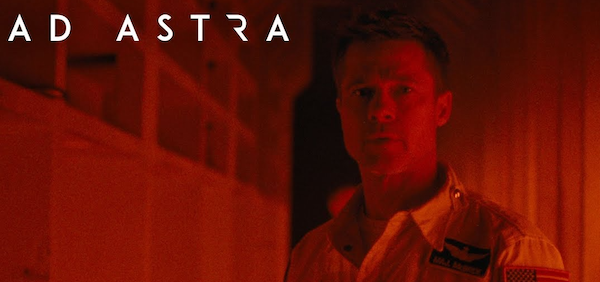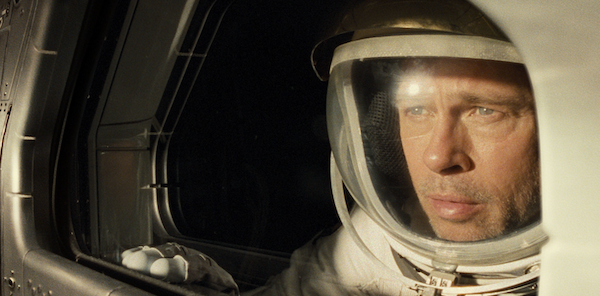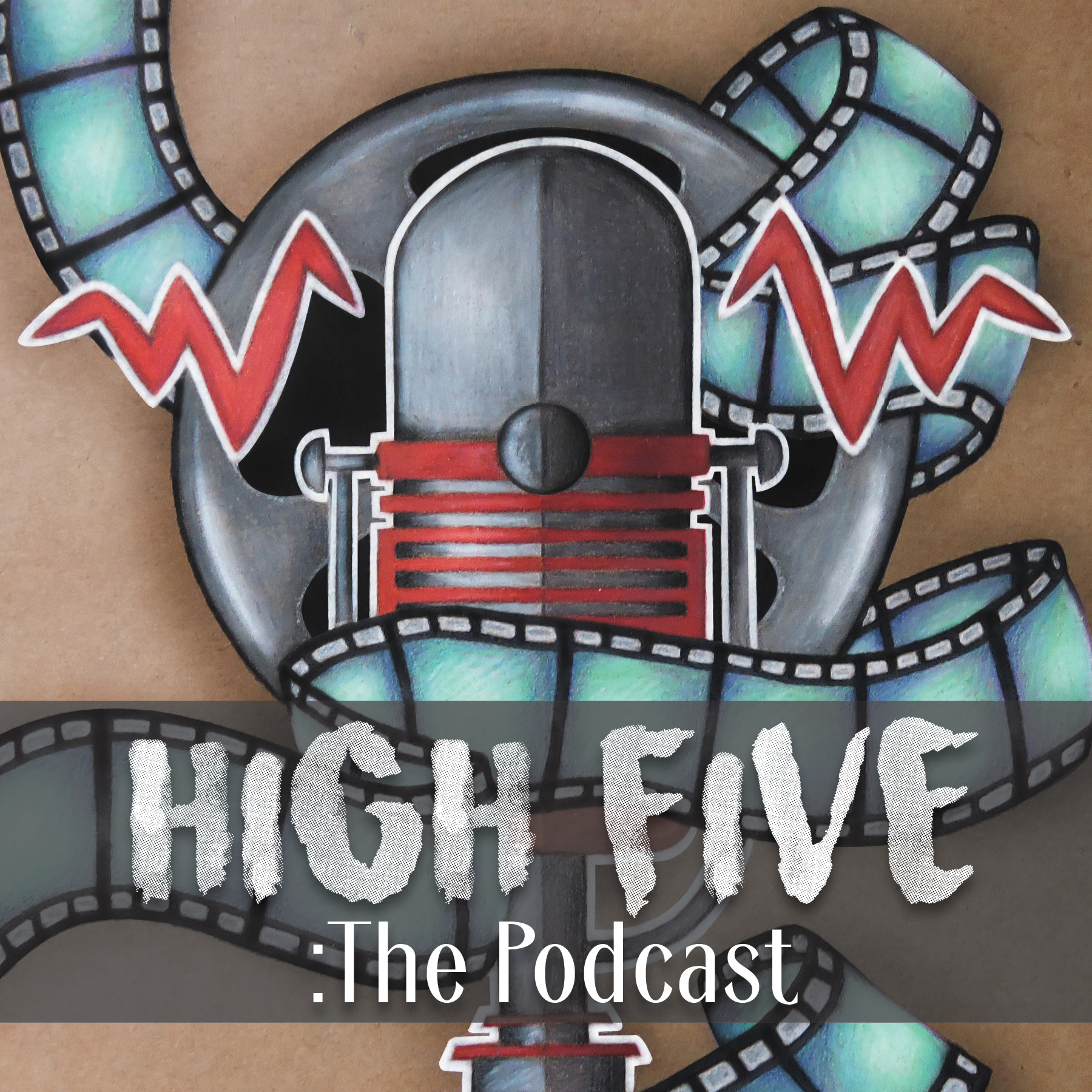Welcome to the Cory C.O.R.N.E.R. (critical observation regarding neo-entertainment, respectfully), a time where your resident know-it-all cinephile, a multi-time Scene-It champion and only slightly-annoying dinner guest, shares his thoughts on whatever movie-ness needs to be movie’d.
Always remember these three things: Twizzlers over Red Vines; Topher Grace was better in Spider-Man 3 than you remembered; in this household, we always make time for Chris Elliott.
THIS WEEK’S MOVIE: AD ASTRA

If 2001: A Space Odyssey was an operatic back trip into a cold, glass rainbow, and Close Encounters of the Third Kind and Interstellar meshing into technicolor warmth, Ad Astra is the happy medium.
It’s the middle ground between Stanley Kubrick’s acceptance of the infinite void as awing balance in its live-giving empathy and destructive cruelty, and Steven Spielberg and Christopher Nolan’s breathless defense as love and human morality as what binds our galaxy together.
With his latest film, James Gray posits a marriage of the two ideas: we cannot escape nature and its random ebb-and-flow, but we can still stand on our own two feet and exercise our definitive humanity. We must enter the void, but not without our hearts. The beauty goes both ways.
Major Roy McBride (Brad Pitt) can’t sleep. He can space walk and tumble from a skyscraper that reaches the stars back to Earth without breaking much of a sweat, but he can’t really get comfortable. The archetype “work-over- family” professional, he’s respected in the distant-future astronaut/military community because he can shut his emotions off and just go through the emotions.
family” professional, he’s respected in the distant-future astronaut/military community because he can shut his emotions off and just go through the emotions.
See, in Gray’s vision of future space travel, it’s suppression that soars. Astronauts are given psychological evaluations every time they take flight or visit the Moon and Mars while on duty. If they test negatively, they enter a state of forced relaxation until numbness takes over. McBride doesn’t really struggle to pass the test, until he finds out his long-absent father, a space explorer who left when Roy was a teen, might still be alive somewhere around Jupiter. It’s his job to find a way to reach him.
McBride’s journey into the stars is quiet, tragic and formative. Walt Disney’s Tomorrowland didn’t come to pass in Gray’s world: The Moon is a schlocky tourist stop and military base, with deadly space pirates tucked on the outer craters. Mars is an abstract wasteland, replete with industrial housing, dusty, red streets and blank stares. Space is truly the final frontier, but what finds its finality might be what makes us human.
But it doesn’t stop McBride or his emotions. Pitt deceives with the depths of the emotion he brings the character, but he can’t hide the quiver. It’s all at once a subdued performance and one bursting at the seams with pain and a longing for catharsis. You see, Roy and his dad never got closure, and it seems that our hero is, indeed, just another in a long line of protagonists who are driven by the sins of their fathers.
Without Pitt, you might mistake Gray for Kubrick or David Fincher. Those filmmakers thrive in the analytical view of our reality, technical wizards who manufacture emotion as fuel for perfection. Their films were icy because their worlds were. Their nature ruled the day; it is the object of desire and praise.
Gray finds a more introspective approach to the way Spielberg and Nolan told their sci-fi stories, and like those two, he’s not going to fully give us the sweet without a stark dose of the sour.
His space is a wasteland, a Wild West where you simply watch your own back and do what you must to survive. Even if it’s not an external threat, it doesn’t mean space madness can’t set in upstairs.
Pitt’s McBride battles his own sanity and unraveling emotions outside of the numerous obstacles his mission throws at him. At times, it gets bloody, hopeless, deflating, impossible. But he’s still driven. Nature may say stop, but the humanity still burns.
In that regard, Gray differs from Kubrick and Fincher, and falls in line more with Spielberg and Nolan: he finds his hope in us, rather than in what surrounds us.

His film is a visual masterpiece, with Hoyte van Hoytema’s lensing capturing the duality of the story: on one hand, we’re supposed to be bewildered and humbled by how stunning something so uncontrollable and domineering as space and nature can be.
But then the frame tightens in on Pitt’s profile, and it’s devastating. Pitt understands the universal pain his character carries and shows it with gentleness and precision.
It’s not that Harry Chapin was a prophet, but his Rankin-Bass warbling in “Cat’s in the Cradle” about sons missing their absent fathers always rattles around in your head when you hear a likeminded story.
Ad Astra, for all of its galaxy-spanning eye-widening and T.S. Eliot stark ruminations on the cruel beauty of nature, is simply a folk song sung long ago, ached in the hearts those who inspired the cat in the cradle and the silver spoon.
It’s a movie about removal, about how no void sucks you deeper in than the void of a parent, about how we search distances across however long we travel to find answers we already know deep down. It’s not that we want questions answered. We just want closure and peace.
But, in Gray’s mind, we find it by what we can give. Nature is unforgiving, but we aren’t.








